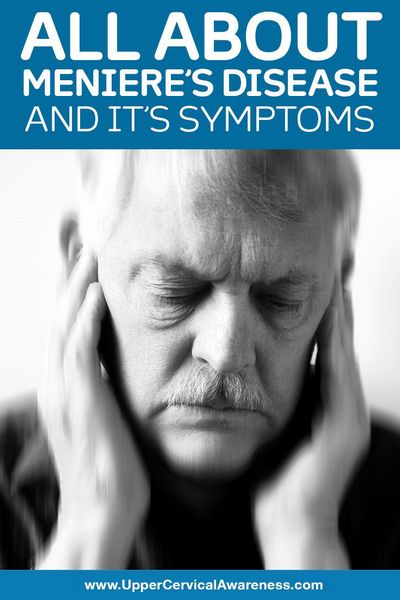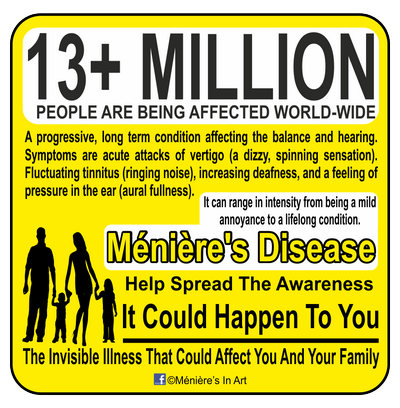Meniere’s Disease is an ailment of the middle ear which can cause constant ear pain (vertigo) and even hearing loss.

Usually in many cases, Meniere’s Disease affects just one ear only. However, it does tend to strike at the age of middle-age. Meniere’s Disease is a life-long condition and is usually brought about by an underlying ear infection or some kind of head trauma. But sometimes, the condition is not so easily detected and thus leads to further complications.
There are three main types of Menieres Disease. Menieres Eustachian, which is the common type; Menieres Auditory and Menieres Vascular which are more serious than the first two.

And then there is the rare Menieres Congenital, which may have no identifiable cause or is hereditary, but there are certain risk factors for it.
Menieres Eustachian refers to the condition where the middle ear muscle tightens causing sudden and loud ringing sound in the ears. Sometimes, the problem of Menieres Eustachian can be treated with anti-inflammatory drugs. This is also known as a transient type of Menieres Eustachian. When the ear pressure is reduced, vertigo disappears.
Menieres Auditory refers to the condition where noise comes in from both ears simultaneously. Sometimes, it also results to hearing loss. The first symptoms of Menieres Auditory are tinnitus, a ringing sound in the ears.

Some patients report the sound to be similar to the sound of their heart beating. However, this symptom is more commonly found in younger people, who do not undergo ear surgeries.
Menieres Vascular refers to the condition when one or more branches of the middle ear are damaged. The damage causes damage to the nerve cells which can result to a partial or complete loss of hearing. This is more common in middle-aged individuals, since the nerves in the ear grow weaker and hence, do not respond well to the treatment with anti-inflammatory drugs.
If the symptoms of Menieres Eustachian, Auditory, or Menieres Vascular are severe, then Menieres Congenital may be diagnosed. However, there are certain risks involved in this type of diagnosis. In some cases, this type of Menieres Disorder, may also lead to a condition known as Menieres Cerebral Artery Disease, which means that the middle ear becomes enlarged, resulting in increased pressure and fluid accumulation inside the middle ear, thus affecting the hearing and balance.
If you think you have Menieres Disorder, it is wise to seek medical attention as early as possible.

The earlier the treatment is applied, the better is the chance of getting rid of the problem in its initial stage. A visit to your doctor will enable them to know the underlying cause of the problem.
You can either consult your physician or go to a doctor who specialises in treating Meniere’s Disease to know the best cure and treatments available for the condition. The condition of your hearing and balance should be checked to find out if the condition is of Menieres Eustachian, Auditory, Menieres Auditory or Menieres Vascular.
Medications prescribed by a doctor will include Anti-convulsants or Antipsychotic drugs. Antipsychotic drugs will have to be taken in conjunction with other medicines. Other drugs that may be given as a part of the treatment include Lidocaine and Corticosteroids. In addition, Corticosteroids can be used as a preventive measure to prevent the occurrence of Menieres Eustachian, Auditory or Menieres Vascular.
Corticosteroids work by relaxing the inner lining of the ears and helping to reduce the pressure.

In some cases, anti-depressants such as Lithium and Triiodothyronine may be prescribed to treat the symptoms of Menieres Eustachian, Auditory or Menieres Vascular. These drugs also help by reducing the pain and inflammation brought about by Menieres Eustachian, Auditory, Menieres Vascular or Menieres Eustachian. Surgery is often the last resort and is used as a last resort.
There are many cases where surgery is required for meniere’s treatment. Surgery can help to treat the middle ear muscle or the inner linings, which obstructs the flow of blood to the affected ear. The surgery can either be open or endoscopic.
Surgery involves removal of the part of the inner ear. It may also involve removal of the ear drum to stop the obstruction of the airways or even the entire inner ear.